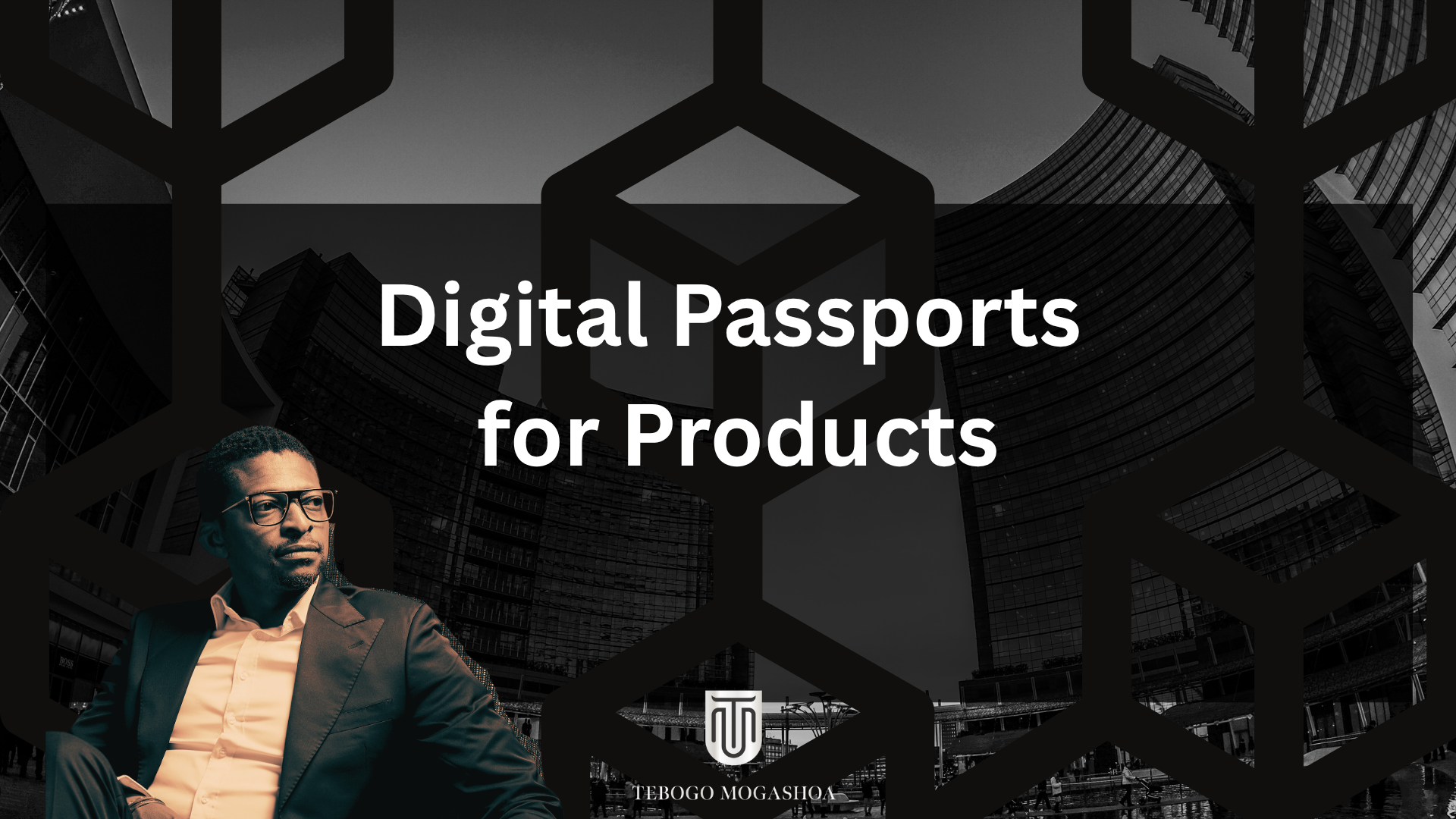Boarding Pass to Transparency: Digital Product Passports in SA
Imagine picking up a bottle of South African wine, scanning a code, and instantly uncovering its entire journey, from the vineyard where the grapes were hand‑picked to every processing step, bottling date, and tasting notes. Or consider your morning coffee: a quick tap on your phone reveals the precise farm, harvest day, roasting details, and even how your purchase supports local communities. This is the promise of a Digital Product Passport (DPP) – a living, digital record that travels with each item, unlocking trust, traceability, and circular‑economy benefits for brands and consumers alike.
What Is a Digital Product Passport?
A Digital Product Passport works like a travel document for goods. Instead of visas and entry stamps, it contains verifiable data entries that chronicle every stage of a product’s life:
- Materials & composition: What it’s made of, safety or eco‑certifications.
- Origin & production: Farms, factories, geographic locations, and dates.
- Ownership transfers: Purchases, gifts, resales, each handoff recorded.
- Repairs & end‑of‑life: Service history, replacement parts, and recycling instructions.
Built on QR codes, NFC tags, or RFID chips, a DPP can be scanned with any smartphone to reveal a live, tamper‑proof window into that product’s backstory.
Why Blockchain Is the Ultimate Trust Engine
Traditional databases can be altered by bad actors or suffer from version mismatches across stakeholders. Blockchain technology solves this by acting as a distributed ledger: when a new event occurs – say, grapes are harvested or a device is repaired, a cryptographically sealed record is appended to the chain.
Key advantages include:
- Immutable records: Once logged, entries cannot be retroactively changed or removed.
- Distributed consensus: Brands, auditors, regulators, and consumers access the same single source of truth.
- Complete audit trails: Every material or component can be traced back to its origin without gaps.
For South African consumers seeking genuine sustainability claims, blockchain‑backed passports provide irrefutable proof instead of marketing buzz.
Spotlight on South African Innovators
South Africa is leading the charge in practical passport implementations that merge technology with local expertise. Take Farmer Connect SA’s “Thank My Farmer” app: this Johannesburg-based initiative partners with IBM Food Trust to put a dynamic passport into the hands of coffee drinkers. A simple QR scan on your coffee bag transports you to the smallholder farms where the beans were cultivated, walking you through each processing step, sorting, washing, exporting, and roasting—and even highlights community projects funded by your purchase.
Meanwhile, agritech firm TraceX has deployed its blockchain-backed farm-to-fork system across citrus groves, table vineyards, and maize fields. In their March 2024 pilot, small-scale and commercial farmers alike recorded geo-tagged harvest details, quality checks, and shipment milestones—all feeding into a unified ledger that exporters use to satisfy demanding international buyers.
Then there’s Cape Town’s DataLedger with WineLedger, a case study in marrying tradition and technology. After proving the concept at a leading estate, WineLedger now gives each bottle a living history: from the moment grapes are harvested, through barrel aging and blending decisions, to lab certifications for organic or biodynamic labels. Enthusiasts can stream winemaker commentary, browse vintage archives, and feel confident in every sip knowing the entire supply chain is transparent and tamper-proof.
The European Mandate: Ecodesign for Sustainable Products Regulation
While these South African innovators lead locally, the European Union’s Ecodesign for Sustainable Products Regulation (ESPR) sets the global benchmark for DPPs. Ratified in July 2024, the ESPR requires all products sold in the EU to carry digital passports, rolling out in phases from 2024 to 2030:
- 2026: Industrial and electric‑vehicle batteries.
- 2027–2030: Electronics, textiles, furniture, and more.
This regulation aims to:
- Boost circularity by making products repairable, durable, and recyclable.
- Increase transparency through publicly accessible supply‑chain and impact data.
- Harmonise standards across all 27 member states.
South African exporters to Europe must prepare now, or risk losing market access.
Why South African Brands Should Act Now
- Build Consumer Trust & Loyalty: South African shoppers, whether in Cape Town’s markets or online, value verified sustainability. A visible DPP sets your brand apart.
- Streamline Compliance: Automated, blockchain‑anchored data flows slash manual audits and help you meet both local and EU regulations.
- Unlock New Business Models: Tailor subscription, resale, and repair services around products with individual passports.
- Gain Operational Insights: Real‑time alerts on quality or supply‑chain glitches empower faster decisions.
Overcoming Local Challenges
- Connectivity gaps: Use offline data capture with periodic blockchain syncing for rural suppliers.
- Digital literacy: Host workshops and offer simple mobile interfaces for farmers and factory teams.
- Cost management: Pilot with a single high‑value product (e.g., premium wine, speciality coffee) before scaling.
Partnering with established platforms like Farmer Connect SA, TraceX, or DataLedger can ease technical integration and stakeholder onboarding.
Next Steps: Your First Digital Passport Project
- Pick a Pilot Product: Choose a signature offering – Rooibos tea, artisanal cheese, or a flagship wine.
- Map Critical Data Points: Identify materials, certifications, batch numbers, and lifecycle events to track.
- Select a DPP Platform: Evaluate local innovators or global solutions for blockchain support and user experience.
- Engage Your Network: Bring suppliers, logistics partners, and customers into the loop early.
- Market the Passport: Launch a campaign to teach shoppers how to scan and explore your product’s story.
- Measure & Iterate: Monitor scan rates, feedback, and efficiency gains to refine your approach.
Embedding blockchain‑anchored Digital Product Passports transforms South African products into living stories—enhancing trust, elevating brand value, and aligning with the world’s push toward a more circular, transparent economy. Whether you’re pouring wine in Stellenbosch or picking coffee cherries in Limpopo, now is the time to secure your boarding pass to transparency.




